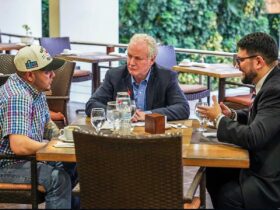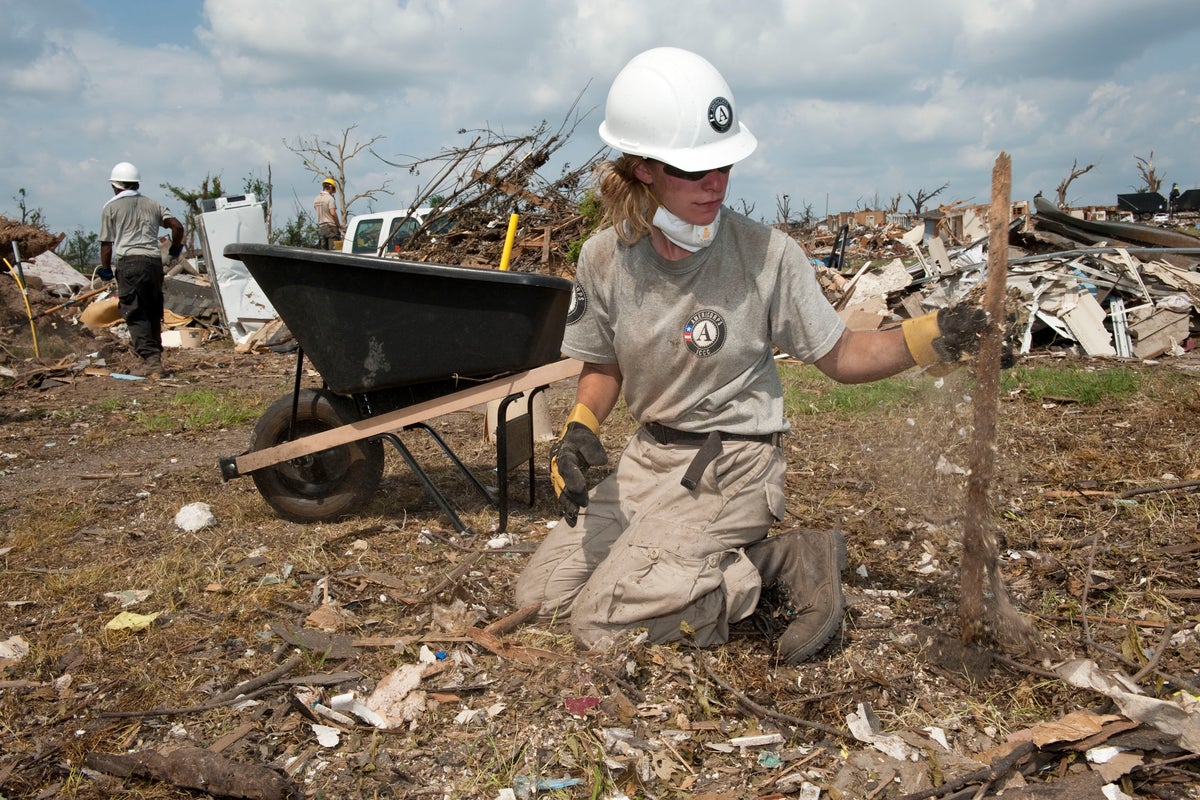Your support helps us to tell the story
From reproductive rights to climate change to Big Tech, The Independent is on the ground when the story is developing. Whether it’s investigating the financials of Elon Musk’s pro-Trump PAC or producing our latest documentary, ‘The A Word’, which shines a light on the American women fighting for reproductive rights, we know how important it is to parse out the facts from the messaging.
At such a critical moment in US history, we need reporters on the ground. Your donation allows us to keep sending journalists to speak to both sides of the story.
The Independent is trusted by Americans across the entire political spectrum. And unlike many other quality news outlets, we choose not to lock Americans out of our reporting and analysis with paywalls. We believe quality journalism should be available to everyone, paid for by those who can afford it.
Your support makes all the difference.
Elon Musk’s Department of Government Efficiency has placed the leadership of the 30-year-old community volunteering service AmeriCorps on leave, putting the group’s future in jeopardy.
The community service program that sends young adults to work on projects across the U.S. is the latest target of the Trump administration’s aggressive campaign to slash government spending.
AmeriCorps’ National Civilian Community Corps informed volunteers Tuesday that they would exit the program early “due to programmatic circumstances beyond your control,” according to an email obtained by The Associated Press.
The unsigned memo to corps members said the group’s “ability to sustain program operations” was impacted by the Trump administration’s priorities and President Donald Trump‘s executive order creating the Department of Government Efficiency. Members would be officially dismissed April 30.
AmeriCorps did not respond to requests for comment.
AmeriCorps National Civilian Community Corps employs more than 2,000 people ages 18 to 26 participating for a roughly 10-month service term, according to the program’s website.
The teams of corps members are tasked with working on several projects related to education, housing, urban and rural development, land conservation, and disaster relief, driving from one assignment to another across the country.
The agency pays for volunteers’ basic expenses, including housing, meals and a “limited health benefit,” as well as a “modest” living allowance, according to the program. The program also provided members who complete their 1,700-hour service term with funding for future education expenses or to apply to certain student loans. That benefit was worth about $7,300 this service year.
Funding for AmeriCorps and National Civilian Community Corps has long been scrutinized when Congress talks of budget trims. The federal agency’s budget showed National Civilian Community Corps funding amounted to nearly $38 million last fiscal year.
A White House official said the Trump administration questioned using taxpayer money for the program. The official spoke to the news agency on condition of anonymity because they were not authorized to comment publicly.
The traditional National Civilian Community Corps volunteers worked with sponsors including community and faith-based based organizations, nonprofits, schools, cities and tribes. Some of the recent service projects included working at a food bank in Washington state, building homes with Habitat for Humanity in North Carolina, and facilitating after school programs in Arizona.
AmeriCorps National Civilian Community Corps also has a partnership with the Federal Emergency Management Agency and, more recently, the U.S. Forest Service. Those volunteers over the last year responded to tornadoes and flooding in Iowa, hurricane damage in North Carolina and wildfires in California, among other natural disasters, when volunteers are especially visible.

Young corps members were told Tuesday night to pack up. Many started long road trips from their latest assignment to campuses in Vicksburg, Mississippi; Vinton, Iowa; Sacramento, California; and Aurora, Colorado. Members would receive their allowance and health coverage through the end of April, according to the memo.
Members were told in the memo that those who have completed 15 percent or more of their term would be eligible for a prorated amount of their education award.
But Kate Raftery, who was National Civilian Community Corps director from 2011 to 2014, said she’s worried about the corps members, many of whom were the “unusual suspects” who “saw this as a really impactful education or career launching pad.”
“They were not young people who had been striving to be service members somewhere,” Raftery said. “They were looking for an opportunity to improve their life. They were looking for an opportunity to build some skills, and to be part of a community.”
















Leave a Reply